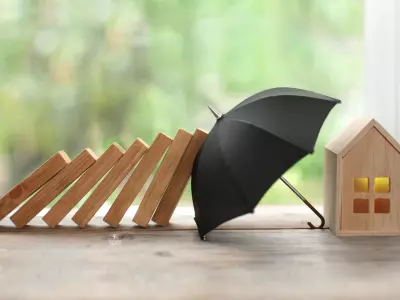Common Air Conditioning Mistakes That Cost You Money
Summer heat can be unforgiving, and your air conditioning system is your best defense against sweltering temperatures. However, many homeowners unknowingly make costly mistakes that compromise their AC's efficiency, increase energy bills, and lead to expensive repairs. Understanding these common pitfalls can help you keep your home cool while protecting your wallet and extending your system's lifespan.
Skipping Preventive Maintenance 🔧
One of the biggest mistakes homeowners make is waiting until their AC breaks down to call for service. Spring is the ideal time to schedule preventive maintenance when temperatures are mild and HVAC technicians aren't overwhelmed with emergency calls.
Summer service calls typically come with higher prices and longer wait times, leaving you sweating while you wait for repairs. A spring tune-up allows technicians to identify potential problems before they become major issues, ensuring your system runs efficiently when you need it most.
Professional maintenance includes cleaning coils, checking refrigerant levels, inspecting ductwork, and replacing worn components. This proactive approach can prevent costly breakdowns and significantly extend your system's lifespan.
Neglecting Air Filter Changes 🌬️
Failing to change your return air filter regularly is one of the easiest mistakes to avoid, yet it's incredibly common. Dirty filters force your system to work harder, reduce air quality, and can lead to premature equipment failure.
Clogged filters allow dirt, debris, pet hair, and other contaminants to bypass the filter and enter your system, potentially damaging expensive components. This buildup can also restrict airflow, causing your AC to run longer and consume more energy to maintain desired temperatures.
Replace filters every one to three months, depending on your home's conditions. Homes with pets, smokers, or high dust levels may need more frequent changes. Check your filter monthly and replace it when it appears dirty or clogged.
Improper Thermostat Programming and Placement 🌡️
Many homeowners believe they can save money by drastically raising the temperature while away, then cooling the house down upon return. This approach actually wastes energy and strains your system, as it works harder to cool a warm house than to maintain a consistent temperature.
Frequent temperature cycling can also create moisture problems, leading to mold, mildew, and other damage. Most HVAC professionals recommend setting your thermostat to your desired temperature and leaving it there, even when away.
Thermostat placement is equally important. Installing it near heat sources like stoves, refrigerators, or in drafty areas leads to inaccurate readings and inefficient operation. The ideal location is on an interior wall in a central area, away from direct sunlight and temperature fluctuations.
Setting Temperatures Too Low ⬇️
Cranking your thermostat down to 65 degrees won't cool your house faster if your system is already struggling to reach 75 degrees. This misconception leads to systems running continuously without ever reaching the desired temperature.
Most residential AC units are designed to cool indoor air to about 20 degrees below outdoor temperatures. On a 95-degree day, setting your thermostat below 75 degrees will cause your system to run endlessly, wasting energy and money without achieving comfortable temperatures.
Instead, set realistic temperature goals based on outdoor conditions and your system's capacity. This approach ensures efficient operation and prevents unnecessary strain on your equipment.
Sizing and Ventilation Issues 📏
Bigger isn't always better when it comes to AC units. Oversized systems cool air quickly but don't run long enough to remove excess moisture, leading to uncomfortable humidity levels and potential mold problems.
Undersized units struggle to maintain comfortable temperatures and run continuously, leading to high energy bills and premature wear. Proper sizing requires professional calculations based on your home's square footage, insulation, window placement, and other factors.
Closing vents in unused rooms might seem logical, but it can damage your ductwork and compromise system performance. HVAC systems are designed to maintain balanced airflow throughout your home, and closing vents disrupts this balance.
Ignoring Warning Signs ⚠️
Strange noises, unusual odors, or declining performance are your AC system's way of signaling problems. Ignoring these warning signs often leads to more expensive repairs and additional component failures.
Common warning signs include grinding or squealing noises, musty odors, weak airflow, frequent cycling, or rooms that won't stay cool. Addressing these issues promptly can prevent minor problems from becoming major repairs.
Keep a maintenance log noting unusual sounds, smells, or performance issues. This information helps technicians diagnose problems more quickly and accurately.
Energy-Saving Tips Without AC 🌪️
When your AC system fails or you want to reduce cooling costs, several strategies can help maintain comfort. Close curtains and blinds during sunny periods, especially on windows receiving direct sunlight. This simple step can significantly reduce indoor temperatures.
Switch to LED or CFL light bulbs, which generate less heat than traditional incandescent bulbs. Limit use of heat-generating appliances like ovens, dishwashers, and dryers during the hottest parts of the day.
Use fans strategically to circulate air and create cooling effects. Exhaust fans can remove hot, humid air from bathrooms and kitchens. Position box fans in windows to draw cool air in during evening hours and push hot air out during the day.
Creating an AC Maintenance Schedule 📅
Develop a regular maintenance routine to keep your system running efficiently. Change filters monthly, clean around outdoor units quarterly, and schedule professional service annually before cooling season begins.
Keep maintenance records including service dates, repairs, and filter changes. This documentation helps identify patterns and can be valuable when filing warranty claims or selling your home.
Budget for regular maintenance and potential repairs. Setting aside funds for HVAC maintenance prevents emergency expenses and ensures you can address problems promptly.
Understanding these common mistakes empowers you to maintain your AC system properly, reduce energy costs, and avoid uncomfortable breakdowns during peak summer heat. Consistent maintenance and smart operating practices will keep your home cool and comfortable while maximizing your system's lifespan and efficiency.
Ready to optimize your home's cooling system? Like our Facebook page for seasonal maintenance tips, energy-saving strategies, and expert HVAC guidance! ❄️
Categories
Recent Posts















